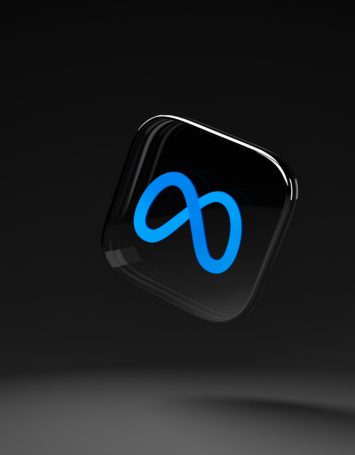Article by Clyde Shuman
The Federal Circuit held that an assignment provision in an employment contract requiring, inter alia, assignment of an employee’s inventions that he may “hereafter…conceive” “in any way connected to any subject matter within the existing or contemplated business of Company,” is void under California law. Accordingly, the Court reversed a district court judgment of breach of contact and incorrect inventorship with respect to three patents conceived after the relevant inventor left the employ of the company. Whitewater West Industries, Ltd. v. Alleshouse, et al., Case Nos. 2019-1852, 2019-2323.
Two provisions of California law are germane. Under Cal. Bus. Prof. C, § 16600 (relevant part) “every contract by which anyone is restrained from engaging in a lawful profession, trade, or business of any kind is to that extent void.” Under Cal. Lab. C. § 2870(a), any provision in an employment agreement requiring an employee to assign his rights in an invention to his employer shall not apply to an invention that the employee developed entirely on his or her own time without using the employer’s equipment, supplies, facilities, or trade secret information except for inventions (i) relating at the time of conception or reduction to practice to the employer’s business or actual or demonstrably anticipated research or development; or (ii) resulting from work performed for the employer.
In this case, Richard Alleshouse and Yong Yeh are named as the inventors on three U.S. patents claiming waterpark attractions that individuals may ride as if surfing and water flow regulating devices for such rides. Pacific Surf Designs Inc., the company formed by Alleshouse and Yeh to develop and market such attractions, is the assignee of the three patents. Whitewater West Industries, Ltd. (Whitewater) is the successor of Wave Loch, Inc., which employed Alleshouse until he went into business with Yeh and the patented inventions were conceived.
While employed by Wave Loch, Alleshouse signed a non-disclosure/non-compete Agreement with Wave Loch. The Agreement’s assignment provision required Alleshouse, inter alia, to assign to Wave Loch all his right, title and interest in all inventions that he “conceives or hereafter may make or conceive” resulting from or suggested by his work for Wave Loch or “in any way connected to any subject matter within the existing or contemplated business of” Wave Loch. Per the Agreement, Alleshouse’s assignment obligation survived the termination of the Agreement.
The Agreement is governed by California law.
Alleshouse later contacted Yeh, an attorney, to discuss Alleshouse’s obligations under the Agreement, and two discussed the possibility of starting their own venture, Pacific Surf Designs. Alleshouse resigned from Wave Loch on July 27, 2012, indicating that his last day with the company would be August 3, 2012. On August 4, 2012, Alleshouse began keeping a notebook of ideas for potential products to be sold by his and Yeh’s new venture. Yeh and Alleshouse began testing out models, concepts and in September 2012, and filed the provisional applications resulting in the three patents in October 2012.
In March 2017, Whitewater sued Alleshouse, Yeh and Pacific Surf Design for breach of contract and correction of inventorship. Whitewater cited the assignment provision of Alleshouse’s employment Agreement with White Loch and argued that Yeh—not employed by Whitewater or its predecessors and not under any assignment duty—was improperly listed as an inventor on the patents. The district court held that (a) Alleshouse breached the employment agreement, which was valid under California law, and Whitewater was therefore entitled to assignment of the patents, and (b) Yeh was improperly joined as an inventor. The district court rejected the argument that the assignment provision at issue was invalid under Cal. Lab. C. § 2870 and Cal. Bus. Prof. C. § 16600, arguing, with respect to § 16600, that Alleshouse’s Agreement did not restrain him from working in the field but only required him to assign inventions resulting from his work at Wave Loch or relating to Wave Loch’s business at the time he was there. (The district court also determined that Alleshouse alone conceived of the inventions and that Yeh’s contributions occurred later and were insufficient.
On appeal, the parties agreed that: (i) the inventions at issue were not conceived until after Alleshouse left his job at Wave Loch; and (ii) Alleshouse did not use any trade-secret or other confidential information belonging to Wave Loch (now Whitewater) in arriving at the patented inventions. Alleshouse and Yeh also agreed that the assignment provision applies to post-employment inventions. In light of this, the Court held that the assignment provision was invalid under § 16600, rejecting Whitewater’s argument that § 2870 overcame invalidity under § 16600.
Per the Court, the Agreement’s assignment provision “has a broad restraining effect that renders it invalid under § 16600.” The Court focused on provision language requiring Alleshouse, as a former employee, to assign to Wave Loch (or its successors, etc.) all of his rights or interests in any invention he “may make or conceive” alone or with others, if the invention either “result[ed] from or [was] suggested by” his “work for” Wave Loch or was “in any way connected to any subject matter within the existing or contemplated business of” Wave Loch. Nothing limited the assignment provision to the use of trade-secret or other confidential information in conceiving the invention or reducing it to practice. Further, the assignment provision was unlimited in time and geography, applying when Alleshouse’s post-employment invention (i) was merely “suggested by” his work for Wave Loch or (ii) was “in any way connected to any subject matter” that was within Wave Loch’s “existing or contemplated” business when Alleshouse there.
The Court said that the restraining effect of these requirements “is evident.” Inter alia, the Court noted that work in the same line of business was necessarily among the best and likeliest prospects for someone like Alleshouse to pursue when leaving his employer. Yet under the assignment provision, a wide range of inventions made after Alleshouse left Wave Loch would have to be assigned to his former employer. The Court recognized that, in such case, the individual (here, Alleshouse) and his new employer or enterprise would lose the likely competitive benefits of the exclusivity rights provided by patents on such new inventions—or, worse, could be subject to being sued by the former employer, as assignee, for patent infringement. Per the Court, under the language of the assignment provision here, “[t]he impairment of the individual’s ability to pursue his profession, trade, or business would be significant.”
Per the Court, an assignment requirement like the one at issue here “imposes [a harsh] penalty on post-employment professional, trade, or business prospects—a penalty that has undoubted restraining effect on those prospects and that a number of courts have long held to invalidate certain broad agreements with those effects.”
On the question of how California has resolved the issue—where there was no use of confidential information and the conceptions of the inventions all post-dated employment, the Court, discussing relevant California Supreme Court decisions, found that California has chosen, in § 16600, to forbid the restraint on former employees imposed by the agreement in this case. Inter alia, as interpreted by the courts, § 16600 “strictly” forbids agreements that impair the post-employment liberty of former employees. The Court found that subsequent Ninth Circuit decisions were in accord.
Specifically with respect to contracts requiring assignments post-employment inventions, the Court found three federal district court decisions addressing the issue “in line with” the California Supreme Court and Ninth Circuit and supporting the Federal Circuit’s rejection of the district court ruling here. per the Court, the California district court decisions confirmed that invention-assignment provisions going beyond protecting proprietary information and ensnaring post-employment inventions are to be judged under the strict § 16600 standards protecting former employees.
The Court rejected Whitewater’s argument that § 16600 should be construed in light of the narrower provisions of § 2870(a). The Court held that § 2870(a) should be read not to override a clear application of § 16600. The Court noted that neither Whitewater nor the district court cited any case applying § 2870(a) to post-employment inventions. As such, and further in light of the legislative history, the Court concluded that, “at a minimum, § 2870(a) is nowhere close to clear in applying to post-employment inventions.”



